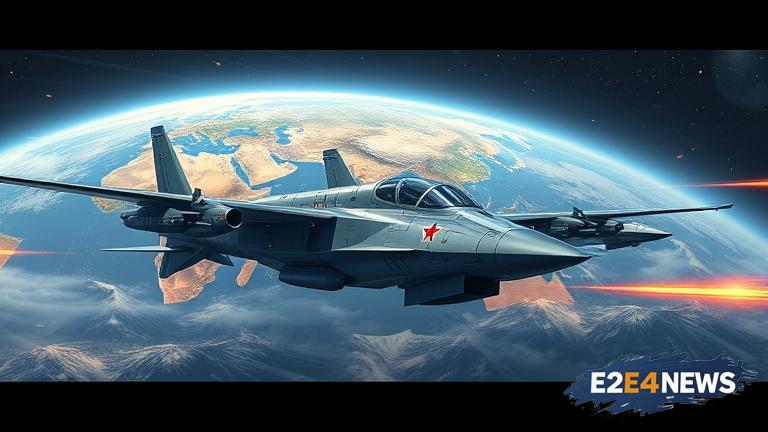China has recently unveiled its latest military technology, solidifying its position as a major player in global defense. The country’s military modernization efforts have been ongoing for several years, with a focus on developing advanced capabilities in areas such as artificial intelligence, cybersecurity, and hypersonic systems. This move is seen as a strategic attempt to bolster China’s global influence and challenge the dominance of other major world powers. The Chinese government has been investing heavily in research and development, with a particular emphasis on emerging technologies that can be leveraged for military gain. As a result, China’s military has made significant strides in recent years, with advancements in areas such as stealth technology, unmanned systems, and electronic warfare. The country’s defense industry has also been expanding its global reach, with partnerships and collaborations with other nations and companies. This has enabled China to access new markets, technologies, and expertise, further accelerating its military modernization efforts. The implications of China’s military advancements are far-reaching, with potential consequences for regional and global security. The country’s growing military presence in the Asia-Pacific region has raised concerns among neighboring nations, who are wary of China’s expanding influence. The United States, in particular, has been watching China’s military developments closely, with some experts warning of a potential threat to American dominance in the region. Despite these concerns, China’s military modernization efforts are likely to continue, driven by the country’s strategic ambitions and desire for greater global influence. The Chinese government has made it clear that it intends to become a major military power, with a capability to project force and protect its interests around the world. This goal is reflected in China’s latest defense white paper, which outlines the country’s military strategy and priorities for the coming years. The paper emphasizes the importance of emerging technologies, such as artificial intelligence and cybersecurity, in enabling China’s military to achieve its goals. It also highlights the need for greater international cooperation and dialogue, in order to address common security challenges and promote stability in the region. As China’s military continues to evolve and expand, it is likely to have significant implications for the global security landscape. The country’s growing influence and capabilities will require other nations to adapt and respond, in order to maintain their own security and interests. This may involve greater investment in defense and security, as well as more effective diplomacy and international cooperation. Ultimately, China’s military advancements are a reflection of the country’s rising global status and its desire to play a more prominent role in international affairs. As the world’s second-largest economy and a major military power, China is likely to continue to shape the global security agenda in the years to come. The country’s military modernization efforts are a key aspect of this strategy, and will be closely watched by other nations and experts around the world. China’s military has also been actively engaged in international peacekeeping and humanitarian missions, demonstrating its commitment to global stability and security. The country’s defense industry has also been expanding its exports, with sales of military equipment and technology to other nations. This has enabled China to generate significant revenue and promote its defense industry, while also strengthening its relationships with other countries. However, China’s military advancements have also raised concerns about the potential risks and challenges associated with the country’s growing military power. Some experts have warned of the potential for China’s military to be used in a more aggressive or expansionist manner, particularly in the Asia-Pacific region. Others have raised concerns about the potential for China’s military technology to be used in ways that undermine global security, such as through the development of advanced cyber warfare capabilities. Despite these concerns, China’s military modernization efforts are likely to continue, driven by the country’s strategic ambitions and desire for greater global influence. The Chinese government has made it clear that it intends to become a major military power, with a capability to project force and protect its interests around the world. This goal is reflected in China’s latest defense white paper, which outlines the country’s military strategy and priorities for the coming years.
